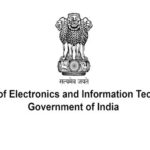National Green Hydrogen Mission accelerates with pilot projects targeting transport sector

With a focus on integrating green hydrogen within the transport sector, the Ministry of New and Renewable Energy (MNRE) has released guidelines for pilot projects under the National Green Hydrogen Mission.
The initiative will lead to substantial decarbonization of the economy, lessen reliance on fossil fuel imports, and position India as a frontrunner in both technology and market leadership within the green hydrogen domain. As part of the mission, MNRE, in conjunction with other initiatives, aims to implement pilot projects to substitute fossil fuels and fossil fuel-based feedstock with green hydrogen and its derivatives.
Launched on January 4, 2023, with a budgetary allocation of Rs. 19,744 crore, the National Green Hydrogen Mission seeks to establish India as a global nucleus for green hydrogen production, usage, and export, including derivatives. This aligns with the government’s objective of attaining self-sufficiency in clean energy while contributing to the worldwide transition towards sustainable energy sources.
Driven by the declining costs of renewable energy and electrolyzers, green hydrogen is anticipated to emerge as a cost-effective alternative fuel in the near future. These pilot projects will serve as crucial testing grounds to assess its feasibility and performance under real-world conditions, evaluating factors such as economic viability, refueling infrastructure, and vehicle efficacy.
Under the aegis of the National Green Hydrogen Mission, MNRE, in collaboration with the Ministry of Road Transport and Highways and designated Scheme Implementing Agencies (SIAs), will spearhead the implementation of pilot projects. These endeavors are aimed at substituting fossil fuels with green hydrogen in buses, trucks, and four-wheelers, alongside the development of requisite infrastructure like hydrogen refueling stations.
With a budgetary allocation of Rs. 496 crore until FY 2025-26, the scheme aims to develop commercially viable hydrogen utilization technologies within the transport sector. This includes utilizing green hydrogen as fuel in buses and trucks (Component A), establishing supporting infrastructure like hydrogen refueling stations (Component B), and exploring innovative applications of hydrogen, such as blending green hydrogen-based methanol/ethanol and other synthetic fuels derived from green hydrogen into conventional automobile fuels.
The scheme’s objectives include facilitating the phased deployment of green hydrogen as fuel in buses and trucks on a pilot basis, validating the technical feasibility and performance of green hydrogen-operated vehicles, evaluating the economic viability of hydrogen-based vehicles, assessing the efficacy of hydrogen refueling stations, and demonstrating the safe and secure operations of hydrogen-based vehicles and refueling stations.









